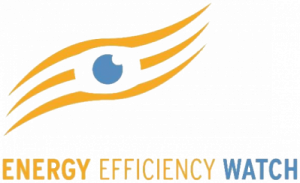Narratives & case studies
The project will develop narratives for the national, regional and local levels, creating a broader understanding of the multiple benefits of energy efficiency.
A narrative is defined as a set of accepted benefits of energy efficiency in a country or a region. In addition to climate benefits, these can be economic benefits (e.g. saving money for energy users), social benefits (fewer unhealthy buildings) or political benefits (e.g. saving money for energy users), or political benefits (decreasing import dependency).
The project will create a strong link between energy efficiency policies triggered by the EU Green Deal, the new EU directives EEW and EPBD, and supportive narratives. This will be achieved through:
With an increased awareness on benefits rather than climate protection, the policy framework appears to be much more stable and less likely to change with every election.
1. Thoroughly analyse the link between the policy foundations of the Green Deal and supportive narratives
Going beyond the traditional impact analysis of policy instruments, it will help the implementation process by identifying, discussing, testing and roll-out of key benefits which play a role for acceptance and positive perception of energy efficiency in the context of MS or specific regions.
2. Discuss the essence of revised EU directives with decision makers
In National Parliamentary Workshops, taking place every few months, MPs and representatives of the public administrations will receive targeted input on the new EED regulations (as well as other key policy initiatives, such as the EPBD or related funding initiatives). They will be invited to discuss the implications for translating them into national
legislation. The core aim is the full implementation of the EED, but also the implications of the Governance
Directive will be considered.
3. Gather broad stakeholder input on existing and potential new narratives
A broad range of energy efficiency stakeholders and target groups such as expert communities (science, administration, energy agencies, NGOs), the business community (companies from relevant sectors having energy efficiency in their
portfolio), stakeholders from regions and municipalities having a role in Green Deal implementation, the Brussels expert community and EU- and national Members of Parliament will be asked for their input and thoughts on policy developments and potential narratives which, in the respective context, can reinforce new and existing EE policy instruments, and thus contribute to a better implementation of EU directives (and thus the Green Deal) and reaching of respective targets. This will be done by an online survey, National Parliamentary Workshops, events in Brussels, and stakeholder workshops.
4. Build narratives strengthening the implementation of the Green Deal and its underlying policies
Based on the inputs of the stakeholders, EEW5 will develop narratives for 10 exemplary cases, using a set of key benefits which in combination with energy savings form a convincing story in each respective context. This will be tested with relevant stakeholders for consistency. Based on the findings of EEW4, the success of the Green Deal depends on narratives accompanying its implementation, creating the necessary buy-in of target groups, and providing arguments why its measures are not just compliance cases but form part of the genuine interest of a country / a region. The narratives will be identified through several formats of interaction with key stakeholder groups (expert survey, business and policy maker/Parliamentary workshops etc.), based on a set of initial questions rooting in the findings of EEW4.
5. Disseminate both the new directives and the results of narrative development
In a detailed roll-out process, starting in month 1 of the project and being intensified over time, at conferences and events, through press releases, the website, social media, webinars, brochure and the EEW5 report. The results will be broadly disseminated all across the EU to all relevant target groups. From the beginning of the project, the content and goals of the new EU Green Deal / efficiency-related directives will be communicated – especially to the national parliamentary level.
6. Provide recommendations for policy makers in a Key Policy Conclusions document
The relevant findings on enabling narratives and on other building blocks of ambitious and high-quality energy efficiency policy implementation, will be summarized in a short document, tailored to policy makers and key influencers from the EE community. The document will provide condensed insights on lessons learned and will show ways how to further increase the ambition level of Green Deal related policies by an appropriate narrative.
